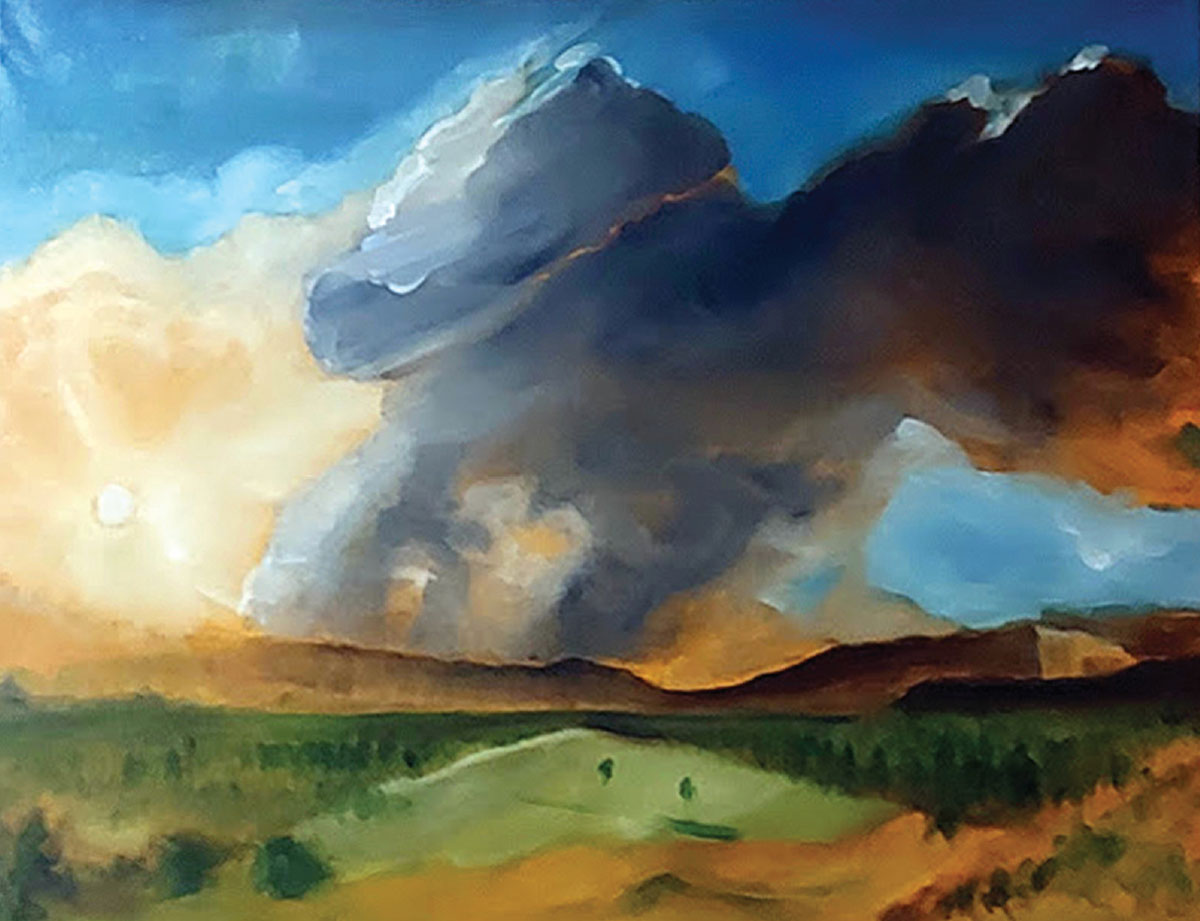Dear People of the Diocese of Kootenay, I’m writing this on the Labour Day weekend, knowing you will not be reading this till almost Thanksgiving. As we start into the season of Autumn, I am aware of the feeling of angst from a summer that didn’t feel like summer, with drought which wrecked crops, the horror of destructive fires, heavy smoke blocking the sun, and a continuing pandemic that adds uncertainty to our lives and overwhelms our medical system.
Some have described this time as apocalyptic. Apocalypse means “revealing.” Crisis reveals our priorities, the cracks in our systems, the failures of our policies and our way of life. It feels like judgment. We discover what is not working and what has to change. It calls us to re-evaluate, to remind ourselves of basic values; this is true personally, in the church and in society as a whole.
We are aware that the extreme heat, the early and long wildfire season, the intensity of hurricanes and rainfall, are all consequences of a climate crisis caused by our misuse of our Earth: overuse of fossil fuels, greed and overconsumption, poor stewardship of the gift of Creation. How do we have the courage to pay attention to the revelation of the current crises and make the changes necessary to reduce our impact on the Earth?
In the Bible, fire is used as an image of judgment, but it is worth examining the meaning of that image. In the popular cultural imagination, the fire of hell is seen as everlasting flame where the wicked are sent. It is a very individualistic image. The Biblical image is much more nuanced.
(It bears repeating that the book of Revelation was written in a peculiar genre of vivid imagery to give people hope in a time of crisis and persecution, and is not meant to be taken as a literal factual blueprint of what is actually going to happen in our own time!).
The purpose of fire in the book of Revelation is to bring people to repentance, to invite them to turn toward God and God’s purposes (e.g. Rev. 16: 8-9.) What is thrown into the lake of fire is Death and Hell itself, not people! (Rev. 20: 14) All those whose names are not written in the Book of Life are thrown into the fire, but as it is clear from scripture God wills that all will be saved, I am willing to leave the “names written in the book of life” in the hands of this generous, forgiving and redeeming God. It is human tendency to wish punishment upon our enemies and those who don’t agree with us. The purpose of God’s judgment, however, is not punishment but redemption and change of behavior!
In the last book of the Hebrew Scripture, the book of Malachi, the image of fire is Refiner’s fire. (Malachi 3: 2-4) God is like a refiner’s fire. Refiner’s fire is used to purify silver, a hot fire that melts the pure metal and burns away the dross, the impurities in the metal. God’s fire, then, is about renewal, of burning away what is destructive or useless, and finding what is valuable (not unlike forest fires, dangerous yet necessary for renewal of the forest). I think this is a helpful way to look at what is happening in our own time, personally, in the church, and in society, a refiner’s fire helps us discern what we must remove and what we must keep.
It is perhaps like the scary and radical spiritual exercise of packing your belongings when you are under evacuation alert; what is essential and what do leave behind, just take a snapshot of to help me remember? One piece of my mother’s jewelry, a sampling of important photographs; what is irreplaceable and what is “just stuff”?
This is a question facing us as church. What do we pack with us for the future and what do we leave behind. Prayer, worship, mission, pastoral care are portable! What is our mission and the call of Jesus in our time? That is essential! The rest – our institutional structure, our buildings – are only there to serve that mission! What do we let go of or change?
The book of Malachi, in describing God as refiner’s fire, asks “who can endure this?” We are called to be a people of courage and hope in the midst of this apocalyptic time, a people who can discern how God is at work even here and now. Not that God has caused this suffering as punishment, but that in the midst of this suffering God is calling us and strengthening us to make the changes necessary to care for the Earth, and to be a people of generous compassion in a harsh time.
The horror of Lytton on June 1 was that homes and livelihood were lost but also the community. One Cathedral parishioner who lost her home in the 2017 fire said to me “but I had friends to take me in, my church community was still there to help me recover. People in Lytton are still scattered and don’t have that place to return to”. As I write this there is still a question of where people from Lytton will be housed this winter. The PWRDF is collecting money for the continued disaster relief in Lytton, (and other fire victims) and the Territory of the People is working with local community members in Lytton for the most helpful distribution of these funds.
I am aware that one of the apocalyptic revelations for us as church this year is that we need to create plans and communication systems for disaster response and relief, and for helping and supporting people recover from trauma. How can we as church offer our buildings and our ability to mobilize volunteers when there is need for community space during evacuations or when cooling centers are needed in extreme heat?
I encourage you in your own church community to ask what would help you prepare to offer practical help next summer.
I pray that we will find our strength in God to not only endure this time but to be people of hope, courage, and action.
Yours in Christ,
+Lynne


